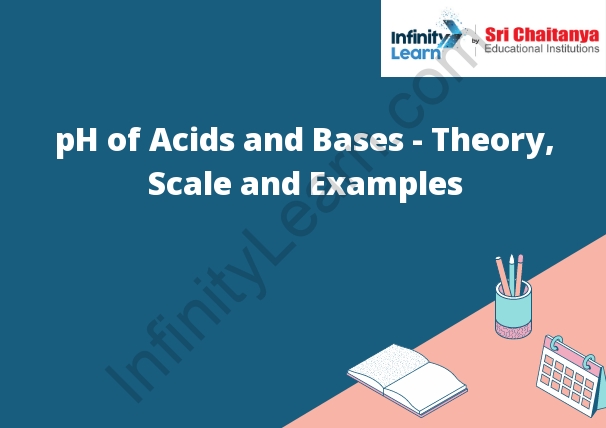Table of Contents
The pH Of Various Substances? ;
The pH scale is a measure of how acidic or alkaline a substance is. Substances with a pH of less than 7 are acidic, while substances with a pH of greater than 7 are alkaline. The pH of a substance can be affected by a number of factors, including the concentration of hydrogen ions (H+) and the presence of other ions.

How To Define Acids And Bases?
Acids and bases are defined in terms of their chemical properties. An acid is a molecule that donates a proton (H+) to another molecule. A base is a molecule that accepts a proton from another molecule.
Arrhenius Theory Of Acids And Bases
The Arrhenius theory of acids and bases states that acids are substances that produce hydrogen ions (H+) in aqueous solutions, and bases are substances that produce hydroxide ions (OH-) in aqueous solutions.
Acids And Bases- pH Scale
The pH scale is a measure of how acidic or alkaline a substance is. The scale ranges from 0 to 14, with 0 being the most acidic and 14 being the most alkaline. A pH of 7 is neutral.
Acids have a pH below 7, while bases have a pH above 7.
What pH Values Correspond To Acids And Bases?
Acids have a pH value of less than 7, while bases have a pH value of greater than 7.
Strong Acids:
Strong acids are acids that ionize completely in water. This means that they dissociate completely into hydrogen ions (H+) and anions.
Some strong acids are hydrochloric acid (HCl), sulfuric acid (H2SO4), and nitric acid (HNO3).
Strong Bases
Strong bases have a high affinity for protons and are capable of completely displacing hydrogen ions from a solution. Examples of strong bases include sodium hydroxide and potassium hydroxide. These bases are capable of completely dissociating in water to form the hydroxide ion and a proton.
Weak Acids
Weak acids are acids that are not very strong. This means that they do not dissociate completely in water.
Some weak acids are:
acetic acid
carbonic acid
hydrofluoric acid
hydrochloric acid
lactic acid
phosphoric acid
weak bases
Weak Bases
Weak bases are those that do not completely dissociate in water. As a result, they do not produce a lot of hydroxide ions. These bases include ammonia and some of the weak organic acids.








